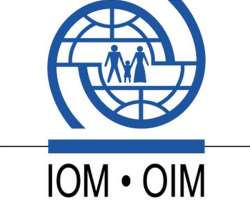Nigeria, IOM Host Dialogue on Irregular Migration and Border Management

GENEVA, Switzerland, May 13, 2014/African Press Organization (APO)/ -- The Federal Government of Nigeria, in collaboration with IOM, is this week hosting a four-day International Dialogue on Irregular Migration and Border Management in Abuja.
The meeting, which began yesterday and includes senior immigration officials from Nigeria, Benin, Cameroon and Chad, aims to provide a platform for building formal policy and operational structures of cooperation and coordination between the Nigerian Immigration Service and its counterparts in neighbouring countries.
The initiative, part of the European Union (EU)-funded project “Promoting Better Management of Migration in Nigeria,” targets broad areas of collaboration, including data collection, intelligence gathering and sharing, combating organized crime, irregular migration, management of regular migration, human trafficking and smuggling of migrants, and security in border regions.
The Nigerian government recognizes that Nigeria is an important destination and sending country for migrants. It is also a source, transit, and destination country for human trafficking, especially of women and children.
Nigeria's national borders are complex to manage. It shares an estimated 4,047 km border with Benin, Cameroon, Chad, and Niger. These borders cut across communities, ethnic groups, and even families, with centuries of close economic, social and cultural ties, which do not respect borders.
The activities of terrorist groups like Boko Haram in Nigeria's north east and Al Qaeda in the Islamic Maghreb (AQIM) in the Sahel region have increased international attention on the effects of irregular movements in Nigeria's north eastern border region. Document fraud through organized crime has also been widely reported.
The Abuja meeting will help the Nigerian Immigration Service to begin to build structures for widening its cooperation and collaboration with neighbouring immigration institutions, in the recognition that migration management is not just a national issue.
Recommendations include a strengthening of intelligence capacity at border control points through joint intelligence gathering and sharing with immigration officers from neighbouring countries. Increased cooperation will also be needed to cope with the challenges of documentation, streamlining entry and exit protocols, and the treatment of irregular migrants and trafficked and smuggled people.
